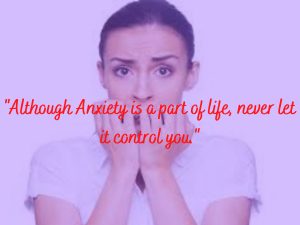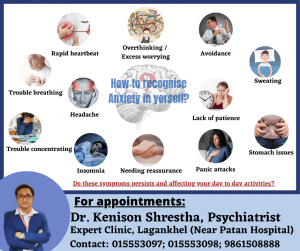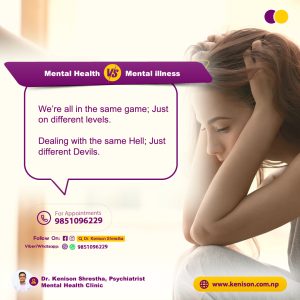Table of Contents
Do I have an anxiety disorder?

Do i have an anxiety disorder?
Do I have an anxiety disorder? This is a question that many people ask themselves, especially if they are experiencing symptoms of anxiety. Anxiety disorders are among the most common mental health conditions, affecting millions of people worldwide. In this blog post, we will discuss the signs and symptoms of anxiety disorders, how they are diagnosed, and what treatment options are available.
What is Anxiety Disorder?
Anxiety is a normal and necessary human emotion that helps us respond to danger and stress. However, when anxiety becomes excessive and persistent, it can interfere with daily life, relationships, and overall well-being. Anxiety disorders are characterized by excessive worry, fear, and apprehension that are out of proportion to the situation or event that triggers them.
There are several types of anxiety disorders, including generalized anxiety disorder, panic disorder, social anxiety disorder, specific phobias, and separation anxiety disorder. Each of these disorders has its own set of symptoms and diagnostic criteria.
“Are you experiencing symptoms of anxiety? Learn about the signs of anxiety disorders, how they are diagnosed, and what treatment options are available in this informative blog post. Get the help you need to take control of your mental health.”
What are the Symptoms of Anxiety Disorder?

The symptoms of anxiety disorder vary depending on the type of disorder, but generally include:
- Excessive worry or fear
- Restlessness or feeling on edge
- Irritability
- Muscle tension
- Fatigue
- Difficulty concentrating or sleeping
- Avoidance of certain situations or activities
- Panic attacks (sudden and intense episodes of fear or discomfort)
These symptoms can be mild, moderate, or severe, and may come and go over time. If you are experiencing these symptoms and they are interfering with your daily life, it is important to seek professional help.
How is Anxiety Disorder Diagnosed?
Diagnosing an anxiety disorder requires a thorough evaluation by a mental health professional, such as a psychiatrist or psychologist. The evaluation may include a clinical interview, a physical exam, and psychological testing. The mental health professional will also assess the severity and frequency of your symptoms, as well as any co-occurring mental health or medical conditions.
To be diagnosed with an anxiety disorder, you must meet specific criteria outlined in the Diagnostic and Statistical Manual of Mental Disorders (DSM-5), which is the standard diagnostic manual used by mental health professionals in the United States. The DSM-5 outlines the criteria for each type of anxiety disorder, as well as other mental health conditions.
What are the Treatment Options for Anxiety Disorder?
Anxiety disorders are treatable with a variety of therapies and medications. The most common treatments include:
Cognitive-behavioral therapy (CBT): This type of therapy focuses on changing negative thoughts and behaviors that contribute to anxiety. CBT can be done individually or in a group setting and has been shown to be effective in treating a variety of anxiety disorders.
Medications: Several types of medications can be used to treat anxiety disorders, including antidepressants, benzodiazepines, and beta-blockers. These medications work by regulating brain chemicals that contribute to anxiety.
Mindfulness-based therapies: Mindfulness-based therapies, such as mindfulness-based stress reduction (MBSR) and mindfulness-based cognitive therapy (MBCT), can help reduce anxiety by increasing awareness and acceptance of the present moment.
Relaxation techniques: Relaxation techniques, such as deep breathing, progressive muscle relaxation, and yoga, can help reduce anxiety by relaxing the body and calming the mind.
In addition to these treatments, lifestyle changes can also help reduce anxiety. These may include exercise, healthy eating, getting enough sleep, and avoiding alcohol and drugs.
So do you still have this question. “Do i have an anxiety disorder?”
Conclusion
If you are experiencing symptoms of anxiety, it is important to seek professional help. Anxiety disorders are common and treatable, and early intervention can lead to better outcomes. A mental health professional can help you determine if you have an anxiety disorder and recommend the most appropriate treatment options. Remember, you do not have to suffer in silence – help is available.
Here we have, Dr. Kenison Shrestha, Psychiatrist, a well qualified Mental Health professional at your service.
Are you afraid or confused how to be prepared for visiting your Mental Health professional for your problems?
Click here for preparing for a professional help

Mental health vs Mental illness
Here in this blog post, we tried to answer your question ( Do i have an anxiety disorder?) about an anxiety disorder.
Follow us on social media:
Facebook: https://www.facebook.com/Psychiatrist.doctorkenison/
Instagram: https://www.instagram.com/dr.kenison_mentalhealthclinic/
Youtube:
Dr. Kenison Shrestha’s Mental health clinic
Recent Comments